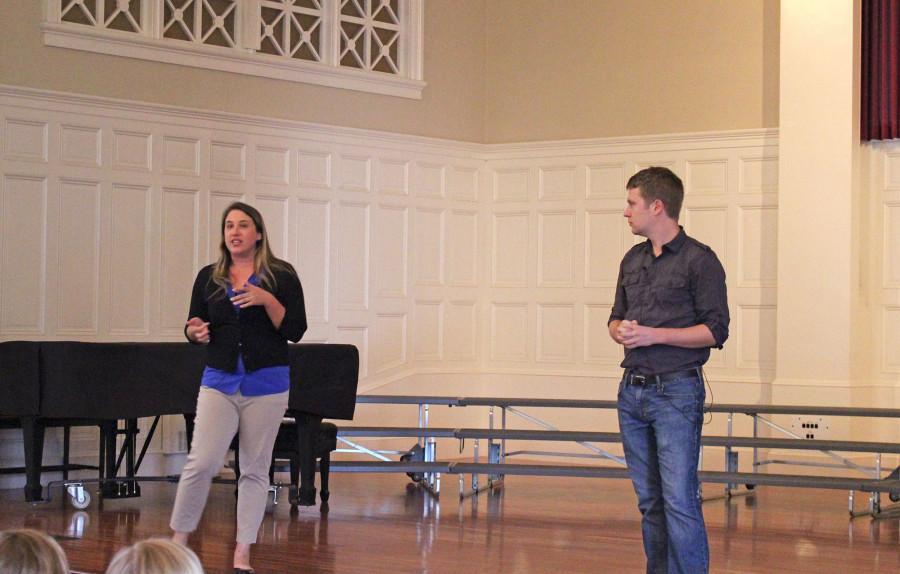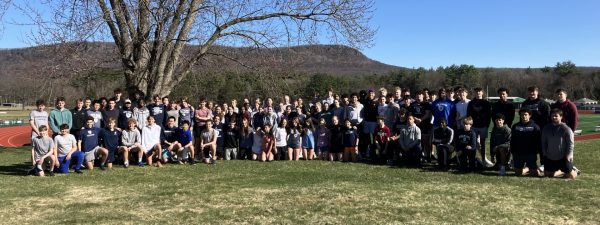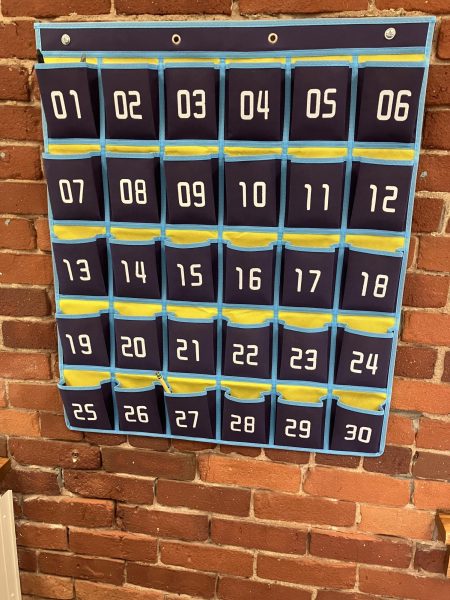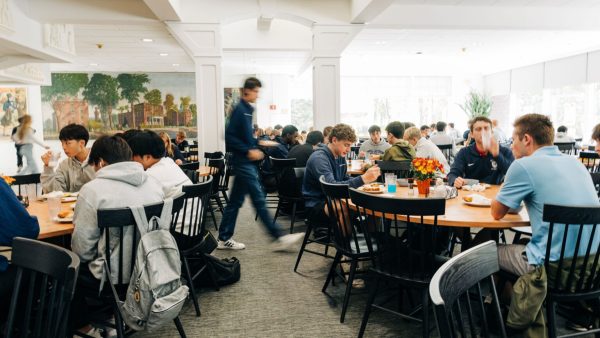Assembly Educates Community on Sexual Assault
On Friday, October 2nd, Williston welcomed two speakers to Assembly to educate our community on the topic of sexual assault.
Amanda Bauer and Colin Gallant from Campus Outreach, a sexual assault awareness organization, took on the roles of “Jake” and “Erika” to recall a fictionalized sexual assault scenario between the two. They then involved Williston students by answering their questions about Jake and Erika’s situation. At the end, the duo had students vote on whether Jake or Erika should be held responsible for the situation, if both were responsible, or if neither was responsible.
As a lead up to the assembly, students took a survey on sexual assault. Their answers gave insight into the extent of students’ knowledge of sexual assault, and the resources available if they are involved in one.
After the assembly, a follow-up survey, similar to the first one, was sent to students. This survey asked students if felt like they knew more about sexual assault after the assembly, and whether anything in the presentation surprised them.
Junior Natalie Aquadro said, “I was surprised about how so many things can be so easily misinterpreted, and about how severe some things really are.”
Senior Pinky King expressed that she found the assembly very worthwhile. She says, “I’d been wanting an assembly like this for a while! Williston has rules which I think are meant in part to prevent sexual assault, like that boys and girls can’t go in each other’s dorms. But really, these rules don’t get to the heart of the issue. If we really want to prevent sexual assault as a school, the best way to do it is to educate everyone on what sexual assault is and why it’s wrong.”
Colin Gallant, who played the role of “Jake,” was impressed by students’ responses to his presentation. When asked about how he hopes students benefited from his presentation, he said, “[my] hope is that because of this assembly, someone is able to think a little more critically about this issue, or see the issue from another point of view. I hope students are able to broaden their scope of what they would define as sexual violence.”
Aquadro ’17 says, “[Before the assembly, I felt] like I had some understanding [of sexual assault], but I definitely see how common it can really be and how important it is to be careful now.”
Gallant mentioned that a big issue is that some people are unsure of what actually constitutes as rape.
He wrote in an email, “When people imagine sexual assault they imagine a scary man hiding behind the bushes waiting to attack a woman jogging down the street. They don’t imagine cases like we discussed at the assembly, which are actually much, MUCH more common.”
Gallant adds, “Both cases fit the definition of sexual assault, but unfortunately the less a cases matches with the ‘man in the bushes’ scenario, the harder it is for people to identify that what happened was sexual assault.”











